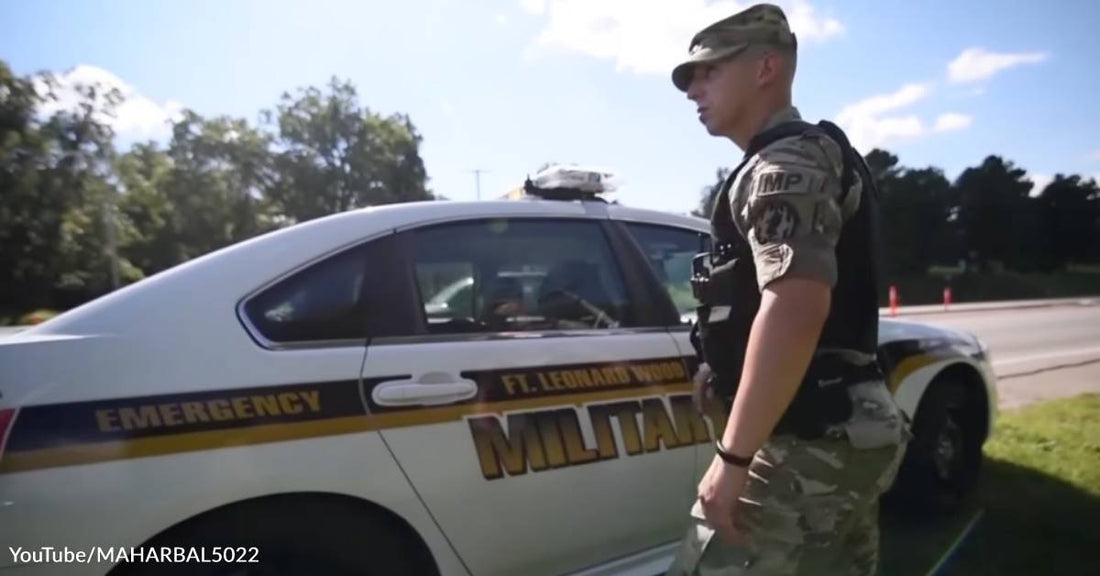MPs: Who Are They and What Do They Do?
Dan Doyle
Maybe most of us had little to do with the MPs when we were in the service. But, if you were young and dumb, like me, you might have had, dare I say, a brief brush with the MPs, or, in my case as a sailor, the Shore Patrol. No need for details here, but suffice it to say, my experience with them was due to the typical 18-year-old 'stupid stuff.' It was enough to elicit a "slap on the wrist" and an object lesson in the consequences that arise from the habit of not thinking before you do something that can only be accurately described as "dumb."
Yup, they are police, and their duties have everything in common with the kind of policing that is done in civilian contexts, but with the unique intricacies of Army or military life. They operate in that universal arena that we all occupy, the human domain. As the English poet Alexander Pope wrote in his Essay on Criticism, "To Err is Human". And we are experts, are we not, at the habits of error.
 Photo: YouTube/MAHARBAL5022
Photo: YouTube/MAHARBAL5022James Madison, in one of the Federalist Papers, wrote, "If men were angels, no government (or laws) would be necessary." But, of course, this is just another way of saying that because we are not angels, we need government and laws. Oh, we rebel, of this there is no doubt, and plenty of evidence exists to prove it. The reality is that laws exist because of this universal human fault. It is there to protect us from the bad decisions of others, as well as from our own occasional "errors." Hence the role and the existence of police, both civilian and military.
Military Police have the mission and duty to maintain the laws and the order that belongs to the common good of those they serve. But people still do stupid stuff, and that is when the MPs get involved. Their duties can cover all elements of law enforcement, from the simple, like handing out tickets for driving errors, to the more complex and complicated issues that are part and parcel with the reality of corrections duties in military jails or prisons.
 Photo: YouTube/MAHARBAL5022
Photo: YouTube/MAHARBAL5022The modern military police unit is a highly trained and adaptable force in the modern Army. They can be involved in law enforcement, in access control on military bases, or as force protection in war zones, and they can respond to a wide variety of crisis situations across the world.
There are currently around 51,000 MPs in the U.S. Army. They make up only about 4% of the Army's total personnel. As remarked earlier, they are spread throughout the Army all around the world. But they are also reinforced by the MPs in the National Guard and Reserve forces. These National Guard and Reserve MPs provide very valuable expertise to the MP Force, because something like 30-40% of them are engaged in some sort of professional police work in their civilian jobs.
 Photo: YouTube/MAHARBAL5022
Photo: YouTube/MAHARBAL5022The Army Military Police have a 75-year history under their belts. They are a highly professional force, and, over the next 75 years, they look forward to having more collaboration among the various Army units as they go wherever the Army goes.
The motto of the Army's Military Police reflects their mission: Assist, Protect, Defend. Their creed is:
"To my unit, my commander, and myself, I promise sustained, just, and honorable support. To my country, the Army, and my Regiment, I promise the skills of my training, my physical ability, my mental initiative, and my moral courage, for I am a soldier in the Military Police Corps Regiment."
Hooah!
https://www.youtube.com/watch?v=lQ2idhA-4Qw


